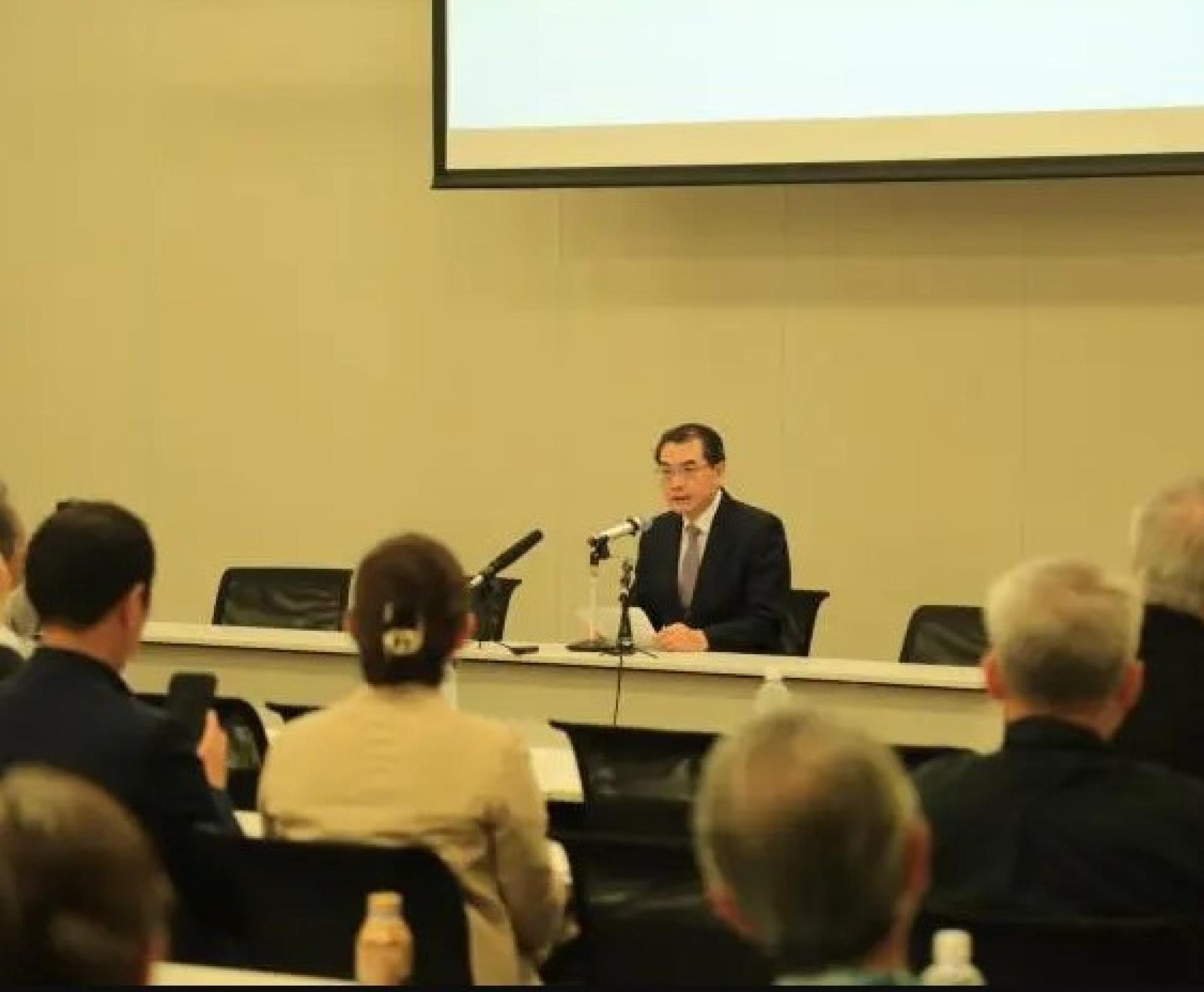On the eve of the 80th anniversary of Japan's surrender in World War II, Chinese Ambassador to Japan Wu Jianghao emphasized that correctly addressing and handling historical issues is an important political foundation for the rebuilding and development of China-Japan relations.
According to the Chinese Embassy in Japan, Wu Jianghao delivered a speech at a Japanese peace and anti-war rally held at the First Members' Office Building of the House of Representatives on Thursday (14th), the announcement published on the embassy website on Friday (August 15th) stated: "We must remember history, reflect on the present, and jointly cherish and safeguard peace."
Wu Jianghao called on the Japanese government to face history with an honest attitude, fulfill solemn political commitments, "completely sever ties with all acts of distorting, beautifying, or denying the history of aggression, and demonstrate its adherence to the path of peaceful development through concrete actions." China is willing to work with people of insight from all walks of life in Japan, to strive to create a future of peaceful and friendly cooperation between China and Japan, on the basis of correctly understanding and passing on history.
The Chinese Embassy in Japan stated that former Japanese Prime Minister Yukio Hatoyama, Fujita Takakage (Chairman of the Murayama Statement Association), Kazuhiko Togo (Chairman of the International Asian Community Institute), and about 300 peace and anti-war figures from various circles attended the meeting.
Wu Jianghao called on the Japanese government to face history with an honest attitude, fulfill solemn political commitments, "completely sever ties with all acts of distorting, beautifying, or denying the history of aggression, and demonstrate its adherence to the path of peaceful development through concrete actions." China is willing to work with people of insight from all walks of life in Japan, to strive to create a future of peaceful and friendly cooperation between China and Japan, on the basis of correctly understanding and passing on history.
The Chinese Embassy in Japan stated that former Japanese Prime Minister Yukio Hatoyama, Fujita Takakage (Chairman of the Murayama Statement Association), Kazuhiko Togo (Chairman of the International Asian Community Institute), and about 300 peace and anti-war figures from various circles attended the meeting.
On the anniversary day (15th), Japanese Minister of Agriculture, Forestry and Fisheries Shinjiro Koizumi, former Minister for Economic Security Takayuki Kobayashi, and Sanae Takaichi paid visits to Yasukuni Shrine, which honors Class-A war criminals of World War II. Japanese Prime Minister Shigeru Ishiba did not visit, but offered a ritual donation to Yasukuni Shrine. On the same day, Liu Jinsong, Director-General of the Department of Asian Affairs at the Chinese Ministry of Foreign Affairs, met with Akira Yokochi, Minister at the Japanese Embassy in China, to lodge a solemn protest against the Japanese officials’ Yasukuni Shrine visits.
Subsequently, the Chinese Ministry of Foreign Affairs also issued a strongly-worded response to journalists, criticizing the Japanese side for openly challenging historical justice and human conscience. It also stressed, "A correct understanding and approach to history is an important precondition for Japan’s return to the international community after the war, the political foundation for developing relations with neighboring countries, and a touchstone to test whether Japan can truly adhere to its commitment to peaceful development."
The Chinese Ministry of Foreign Affairs also stated: "We urge the Japanese side to face and reflect on the history of aggression, to speak and act prudently on historical issues such as Yasukuni Shrine, thoroughly sever ties with militarism, adhere to the path of peaceful development, and earn the trust of Asian neighbors and the international community through concrete actions."
Subsequently, the Chinese Ministry of Foreign Affairs also issued a strongly-worded response to journalists, criticizing the Japanese side for openly challenging historical justice and human conscience. It also stressed, "A correct understanding and approach to history is an important precondition for Japan’s return to the international community after the war, the political foundation for developing relations with neighboring countries, and a touchstone to test whether Japan can truly adhere to its commitment to peaceful development."
The Chinese Ministry of Foreign Affairs also stated: "We urge the Japanese side to face and reflect on the history of aggression, to speak and act prudently on historical issues such as Yasukuni Shrine, thoroughly sever ties with militarism, adhere to the path of peaceful development, and earn the trust of Asian neighbors and the international community through concrete actions."
